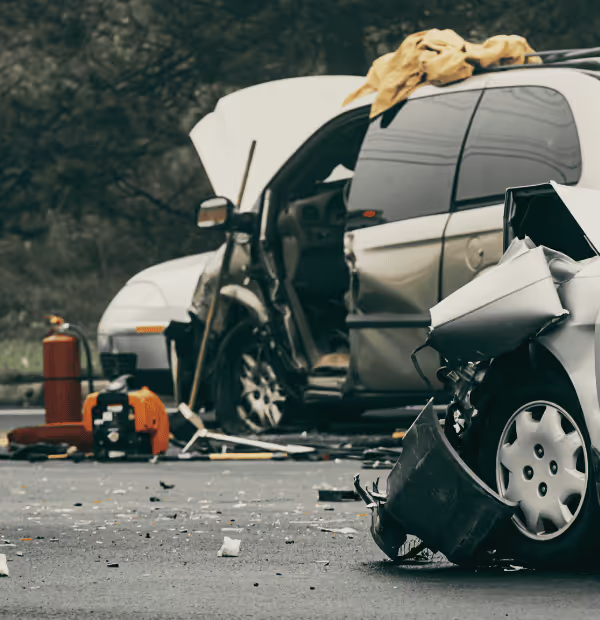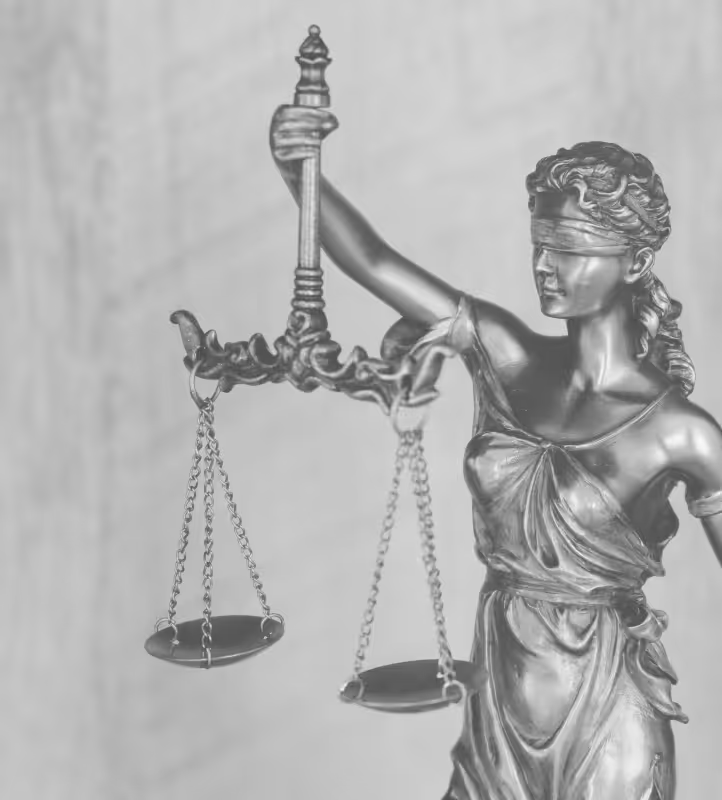Dangerous Driving

Expert Legal Defence for Dangerous Driving Charges
Facing a dangerous driving charge can have serious implications. At Brightstone Defence, we provide comprehensive legal support to help you navigate the process and achieve the best possible outcome. Our experienced lawyers can:
- Assess the circumstances of your case and identify potential defences such as emergency situations, mechanical defects, or lack of evidence
- Challenge prosecution evidence including witness testimony, police reports, or dashcam footage
- Advise on plea options, mitigation strategies, and potential sentencing discounts
If you are charged with dangerous driving, contact Brightstone Defence early. Our experience in handling dangerous driving, aggravated dangerous driving, and offences occasioning grievous bodily harm or death ensures we can provide strategic guidance tailored to your situation.
What is Dangerous Driving?
Dangerous driving is legislated under both the Crimes Act 1900 and Road Transport Act 2013. These offences involve the operation of a vehicle in a manner that is dangerous to the public, often with correlation to serious injury or death.
Under the Road Transport Act 2013, offences include negligent driving (section 117(1)), furious, reckless, speed or in a manner dangerous (section 117(2)) or in a manner that menaces another person (section 118(1) and (2)).
Under the Crimes Act 1900, offences include dangerous driving occasioning death (section 52A(1)), aggravated dangerous driving (section 52A(2)), dangerous driving occasioning grievous bodily harm (section 52A(3)) or aggravated dangerous driving occasioning grievous bodily harm (section 52A(4)).
Elements the Prosecution Must Prove
To secure a conviction the prosecution must prove beyond reasonable doubt that you:
- Were driving the vehicle
- The driving occurred on a public road
- The driving was dangerous
Possible Defences
- There was an emergency – you were acting in response to an unexpected situation
- There was a mechanical defect
- You were not driving the vehicle
- Your driving was not dangerous
Potential Penalties
The potential penalties for dangerous driving are dependent on your various circumstances, however, it is important to note that it can have a lasting impact on your everyday life. It is important to seek legal advice for the best possible outcome for your case.

Legal Process
& Options
Dangerous driving offences carry serious consequences, so seeking early legal advice is crucial. A skilled lawyer can help you understand your rights, prepare your defence, and strive for the best possible outcome.
Pleading
Not Guilty
If you plead not guilty to a dangerous driving charge, your case will proceed to a defended hearing in the Local Court. This means the prosecution must prove beyond a reasonable doubt that your driving was dangerous and that it posed a real risk to the public.
During the hearing, your criminal defence lawyer will have the opportunity to:
- Challenge the evidence presented by the prosecution, such as witness testimony, police reports, or dashcam footage
- Cross-examine prosecution witnesses
- Present evidence and call witnesses on your behalf
- Argue that your driving did not meet the legal definition of dangerous or that other factors caused the incident
Pleading not guilty allows you to contest the charge and tell your side of the story. However, it often means the legal process will take longer and may involve more complexity, so having skilled legal representation is essential to help navigate the process and advocate for the best possible outcome.
Pleading
Guilty
If you decide to plead guilty to a charge of dangerous driving, you are admitting to the offence. This can demonstrate remorse and cooperation, which may work in your favour during sentencing.
After your guilty plea is entered, the matter will move to a sentencing hearing. During this hearing, the court will consider several factors when determining your penalty, including:
- The seriousness of the driving and whether anyone was injured
- Your prior traffic or criminal history
- Whether you have shown remorse or taken steps to address the behaviour (e.g., attending a traffic offender program)
- The impact on any victims
- Any mitigating circumstances (e.g., medical issues, momentary lapse in judgment)
By pleading guilty early, you may also be entitled to a sentencing discount, which can reduce the severity of the penalty imposed, potentially avoiding a harsher sentence.
Even if you intend to plead guilty, it is still highly advisable to seek legal advice. A lawyer can help you present your case in the best light and may be able to assist in reducing the penalty through strong submissions on your behalf.
Dangerous driving is a serious criminal offence that occurs when a person drives a motor vehicle in a manner that is dangerous to the public, resulting in:
- Death (s 52A(1)) or
- Grievous bodily harm (GBH) (s 52A(3))
It falls under section 52A of the Crimes Act 1900 (NSW).
“Dangerous” means more than simply negligent or careless, it involves driving in a way that poses a real and obvious risk to the safety of others.
This includes:
- Excessive speeding
- Driving under the influence of alcohol or drugs
- Aggressive driving (e.g., road rage, tailgating)
- Ignoring traffic signals or rules
- Street racing
- Driving while fatigued or distracted
It is assessed objectively, i.e., would a reasonable person see this as dangerous?
A dangerous driving offence becomes aggravated if it involves:
- High-range alcohol (BAC over 0.15)
- Illicit drugs in system
- Excessive speed (more than 45 km/h over the limit)
- Driving to escape police pursuit
- Driving while fatigued to the point of impairment
These increase the maximum penalties and make a custodial sentence more likely.
Yes. Conviction for dangerous driving results in automatic licence disqualification.
For dangerous driving occasioning death:
- Automatic disqualification: 3 years (can be reduced to 12 months)
For dangerous driving occasioning GBH:
- Automatic disqualification: 3 years (can be reduced to 12 months)
In aggravated cases, longer disqualifications or interlock orders may apply.
If you are charged with dangerous driving, it is crucial to seek legal advice as soon as possible. A lawyer can guide you on plea options, defence strategies, and help mitigate penalties. Contact Brightstone Defence immediately to protect your rights and future.
Dangerous driving is a serious criminal offence that occurs when a person drives a motor vehicle in a manner that is dangerous to the public, resulting in:
- Death (s 52A(1)) or
- Grievous bodily harm (GBH) (s 52A(3))
It falls under section 52A of the Crimes Act 1900 (NSW).
“Dangerous” means more than simply negligent or careless, it involves driving in a way that poses a real and obvious risk to the safety of others.
This includes:
- Excessive speeding
- Driving under the influence of alcohol or drugs
- Aggressive driving (e.g., road rage, tailgating)
- Ignoring traffic signals or rules
- Street racing
- Driving while fatigued or distracted
It is assessed objectively, i.e., would a reasonable person see this as dangerous?
A dangerous driving offence becomes aggravated if it involves:
- High-range alcohol (BAC over 0.15)
- Illicit drugs in system
- Excessive speed (more than 45 km/h over the limit)
- Driving to escape police pursuit
- Driving while fatigued to the point of impairment
These increase the maximum penalties and make a custodial sentence more likely.
Yes. Conviction for dangerous driving results in automatic licence disqualification.
For dangerous driving occasioning death:
- Automatic disqualification: 3 years (can be reduced to 12 months)
For dangerous driving occasioning GBH:
- Automatic disqualification: 3 years (can be reduced to 12 months)
In aggravated cases, longer disqualifications or interlock orders may apply.
If you are charged with dangerous driving, it is crucial to seek legal advice as soon as possible. A lawyer can guide you on plea options, defence strategies, and help mitigate penalties. Contact Brightstone Defence immediately to protect your rights and future.
SUCCESS CASES & ARTICLES
Brightstone Defence delivers focused criminal defence services year-round and has built a strong track record of successful outcomes.
Meet our lawyers
WORLD CLASS
REPRESENTATION
100+ 5 Star Reviews
Personalised legal strategies tailored to each case
Recognised leaders in criminal defence law
Free initial consultation and case evaluation
Proven success in high-stakes and complex cases
Get AN instant estimated Quote
and a free consultation session
Facing criminal charges? Our experienced criminal defence lawyers are here to help. Book your free consultation now to discuss your case and understand your options.







